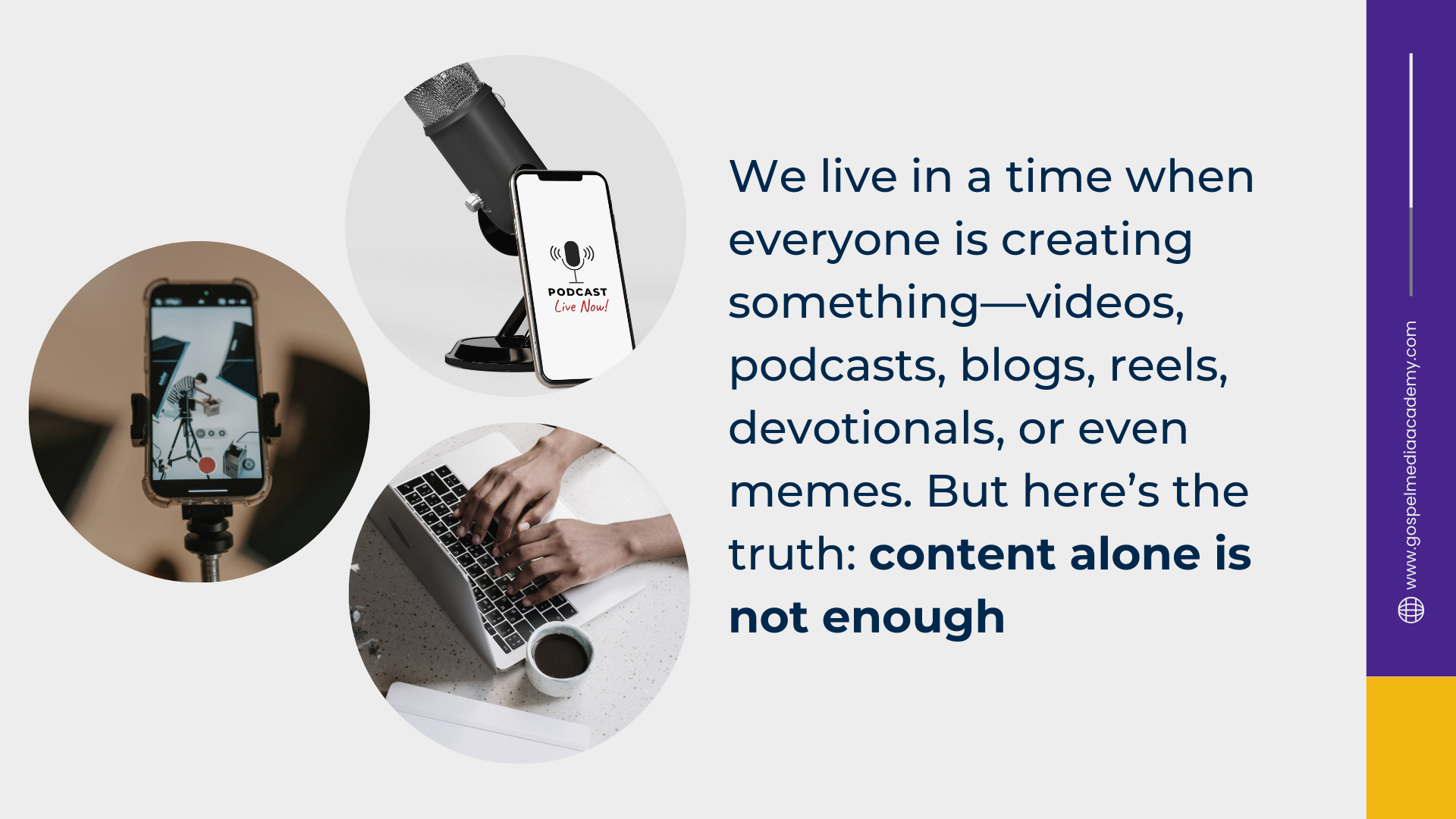“Content without marketing is like hiding a lamp under a basket.”
We live in a time when everyone is creating something—videos, podcasts, blogs, reels, devotionals, or even memes. But here’s the truth: content alone is not enough.
Imagine lighting a lamp and then placing it under a basket. No matter how bright the flame burns, it won’t illuminate the room. In the same way, creating powerful content without intentionally sharing it is like hiding your light. That’s where content marketing comes in.
Defining Content Marketing
At its core, content marketing is simply marketing your content—intentionally sharing it in a way that reaches the right people, at the right time, with the right message.
Here are a few ways experts define it (in simpler terms):
- Strategic process – Content marketing is a planned effort to create and share valuable, relevant, and consistent content that attracts and retains a specific audience.
- Educating and inspiring – It’s about producing material that teaches, guides, or entertains people so that they grow trust in your voice.
- Inbound marketing – Instead of chasing people, your content draws them in by offering value first.
📌 No matter the wording, five themes show up again and again: strategy, value, relevance, consistency, and audience.
Why Content Marketing Matters
Some might ask, “Isn’t content marketing for businesses? I just want to share the gospel.”
The answer is both yes and no. Yes, businesses use content marketing to attract customers. But the principle itself is universal: to communicate effectively, you must be intentional about how your message reaches people.
For Christian creators, the goal is not profit—it’s impact and souls. Without intentional distribution, even the most anointed sermon, blog, or song may never reach the people who need it most. Content marketing ensures your voice doesn’t get lost in the noise of endless videos, posts, and podcasts competing for attention.
Think of Paul the Apostle. He didn’t just preach randomly—he traveled strategically, wrote letters, built communities, and adapted his methods depending on his audience (Acts 17:22-34). That’s biblical content marketing.
The Heart of Christian Content Marketing
Here’s what makes it unique for us as believers: we don’t do it alone.
- We partner with the Holy Spirit, the ultimate strategist, who guides us on what to say, when to say it, and how to say it.
- Our “metrics” aren’t just likes, views, or shares—they’re lives transformed, souls encouraged, and hearts drawn closer to God.
- Our message is eternal truth, but our methods must be relevant to the times. That’s why digital platforms are a gift: they give us new ways to shine our light.
So whether you’re creating YouTube sermons, designing Instagram devotionals, or hosting a podcast on faith and business, content marketing isn’t a luxury—it’s a stewardship responsibility.
Reflection: What’s Your “Why”?
Before jumping into tools and strategies, pause and reflect on your motivation. Your “why” is your fuel for the long journey of content creation.
Ask yourself:
- Why did I choose this form of content (video, podcast, blog, etc.)?
- Why do I want to start this channel/blog/platform?
- Why do I want to reach this specific audience?
- Why do I want to share this particular message?
- Why do I want to see this message impact lives?
The deeper your “why,” the stronger your consistency will be—because you’ll always remember the mission behind the message.
Final Thought
Content marketing is not about chasing fame. It’s about clarity, reach, and faithfulness. It ensures that the light God placed within you is seen, not hidden. When combined with prayer and Spirit-led strategy, it turns ordinary posts into eternal seeds of transformation.
“You are the light of the world. A city set on a hill cannot be hidden.” – Matthew 5:14
👉 Call to Action
- Take a notebook today and write down your personal “why” for creating content. When challenges come (and they will), this “why” will remind you of your true mission.

